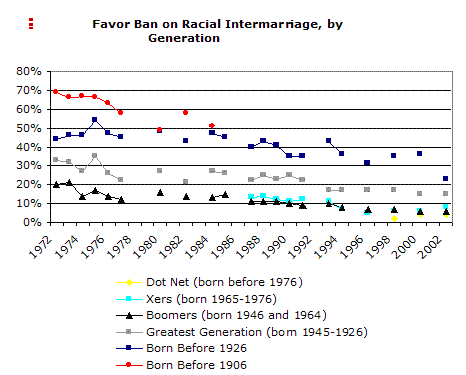Last fall, I spent nearly a whole Saturday in the playground of my younger daughter’s school. It was the day of a block party, and she wanted to stay for hours. From time to time, I saw and talked to adults I knew, but mostly I just watched the scene. I kept thinking of Yeats’ “Among Schoolchildren.” I don’t know the poem by heart, unfortunately, but I remembered the structure and several of the lines. It struck me that I am a perfect opposite of Yeats, and not only because he was a genius of a writer and I am not.
Monthly Archives: March 2005
spam attack
This site is really under attack today. In addition to the scores of spurious “trackback pings” than I’ve been receiving every day, an organization has now posted more than 200 comments that are really advertisements for its product. Their software puts no more than one comment on each of my posts, so that I must open up more than 200 separate records and painstakingly remove each ad. Their spam software uses a different, fake IP address each time so that I can’t block it from posting. Instead of writing something substantive, I’ve been trying to clean up the site and have also inquired about changing my software. I hope to be back in business tomorrow, but I may have to delay blogging until I can solve this problem. (Someone who can spam me 200 times in six hours can spam me 2,000 times and do me in.) Isn’t interactivity great?
the computer as a metaphor for the brain
Last Friday, some colleagues and I discussed a very strong paper by Joe Oppenheimer et al. that bridged rational choice theory and cognitive psychology. The authors of the paper (and the texts they quoted) said that memories are “stored,” “linked,” “tagged,” “called up,” and “retrieved” by the brain. These metaphors have come originally from various domains of human activity. (I suppose that shopkeepers store things, dogs retrieve things, and archaeologists tag things–to name just a few uses). However, the proximate source for all these words, obviously, is computer programming. Without thinking twice about it, we use the computer as an analogy for the human brain. This analogy can be illuminating, but we must be careful to remember that it is not literal. Brains are like today’s computers in some respects, but not in many others. It struck me that in John Locke’s day, the main metaphor for the brain was painting: i.e., representation of sense-data on flat surfaces. Painting was a very advanced technology in 1700–better than it is today. But it was an imperfect metaphor for cognition, and so is computing in our era.
tolerance & generational change
